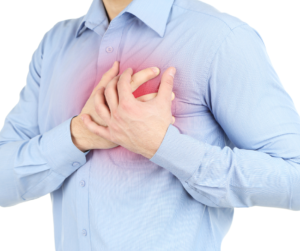Anxiety is a complex and often misunderstood condition that can manifest in various physical symptoms, including chest pain. In this article, we will delve into the phenomenon of anxiety chest pain, exploring its causes, symptoms, and management strategies. By understanding the connection between anxiety and chest pain, individuals can better cope with their symptoms and seek appropriate treatment.
Understanding Anxiety and Its Physical Symptoms
Anxiety is a natural response to stress or perceived threats, characterized by feelings of worry, fear, and apprehension. While anxiety primarily affects mental and emotional well-being, it can also manifest in physical symptoms, such as rapid heartbeat, muscle tension, shortness of breath, and chest pain.
Anxiety chest pain, also known as psychogenic chest pain or non-cardiac chest pain, refers to discomfort or pressure in the chest that is not caused by a heart-related issue. Instead, it is believed to be linked to heightened stress levels and the body’s physiological response to anxiety.

Causes of Anxiety Chest Pain:
- Muscle Tension: Anxiety often leads to increased muscle tension throughout the body, including the chest area. This tension can result in feelings of tightness, discomfort, or even sharp pain in the chest.
- Hyperventilation: During periods of anxiety, individuals may experience rapid or shallow breathing, known as hyperventilation. This can disrupt the balance of oxygen and carbon dioxide in the body, leading to symptoms such as chest pain, dizziness, and tingling sensations.
- Gastrointestinal Issues: Anxiety can also affect the digestive system, leading to conditions such as acid reflux or gastroesophageal reflux disease (GERD). These conditions can cause chest pain or discomfort that may be mistaken for a heart-related issue.
- Panic Attacks: In some cases, anxiety chest pain may occur during a panic attack, which is a sudden onset of intense fear or discomfort. Panic attacks can trigger physical symptoms, including chest pain, sweating, trembling, and a sense of impending doom.
- Symptoms of Anxiety Chest Pain: Anxiety chest pain may present differently for each individual, but common symptoms include:
- Pressure, tightness, or discomfort in the chest
- Sharp or stabbing pain
- Pain that worsens with deep breathing or physical activity
- Pain that improves with rest or relaxation
- Associated symptoms such as shortness of breath, dizziness, or nausea
Management Strategies for Anxiety Chest Pain:
- Deep Breathing Exercises: Practice deep breathing exercises to help reduce muscle tension and promote relaxation. Focus on slow, deep breaths, inhaling through the nose and exhaling through the mouth.
- Mindfulness Meditation: Engage in mindfulness meditation to cultivate awareness of the present moment and reduce anxiety-related symptoms. Mindfulness techniques can help individuals observe their thoughts and emotions without judgment, leading to a greater sense of calmness and control.
- Physical Activity: Regular physical activity, such as walking, jogging, or yoga, can help alleviate anxiety symptoms and reduce muscle tension. Aim for at least 30 minutes of moderate exercise most days of the week.
- Seek Professional Support: If anxiety chest pain persists or significantly impacts daily functioning, seek support from a mental health professional. Therapies such as cognitive-behavioral therapy (CBT) and the One Belief Away™ Hypnosis Method can help individuals address underlying anxiety triggers and develop effective coping strategies.
Anxiety chest pain can be distressing and alarming, but it is important to remember that it is often a benign symptom of anxiety rather than a sign of a serious medical condition. By understanding the causes, symptoms, and management strategies for anxiety chest pain, individuals can take proactive steps to manage their symptoms and improve their overall well-being.
Through a combination of self-care techniques, professional support, and holistic approaches like the One Belief Away™ Hypnosis Method, individuals can find relief from anxiety chest pain and lead fulfilling lives.
Get a free copy of my program, The Power of Your Unconscious Mind. It will explain where the anxiety comes from and how we can get rid of it.
